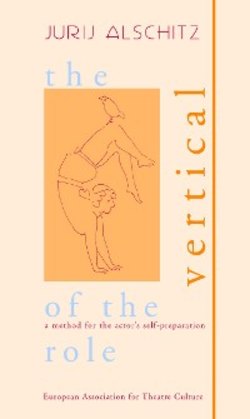Читать книгу The Vertical of the Role - Jurij Alschitz - Страница 5
Оглавление2. A different pattern of acting
To be an artist means first and foremost the ability to discern divine nature and to realise this divine nature through your own personality. These are probably the two most essential pre-conditions for the artist. And the latter is closely linked with the actor’s ability to be attuned to his own person. Unfortunately, this gift is often left unexplored and is sometimes even consciously destroyed. The more the director trusts his actor, I have noticed, and the more the actor trusts himself, the higher the actor’s ability to organise the process of preparation for his role and the stronger his artistic nature becomes. And, vice versa, the more the director fusses over his actor, the weaker the actor becomes as an artist and the more boring to work with.
When I mention this process of self-preparation, I mean primarily the development of the actor’s independent artistic thinking. In other words, self-
education on the part of the actor is not sufficient. It goes without saying of course that a present-day actor has to be an educated and intelligent human being (this is a platitude hardly worth repeating – though even this is sometimes sadly missing) – but the actor of the new generation must also become an artist, a poet, i.e. a master in his own right. He has to be able to make his own choices, to create his role and embody it on the stage. No-one else can assume responsibility for your own work, for your own life, indeed for your happiness than you yourself. After all, this constitutes the main stimulus and even the main meaning of our profession – the ability to feel happy and joyful.
Self-preparation should not be considered the mere transfer of the rehearsal process from a theatre stage to the actor’s home. Rather, it presents a totally different concept for organising the very personality of the actor, the formation of his own attitude towards his role – both in his life and on stage. It means creating the role not at someone else’s prompting but according to the actor’s own artistic principles and views. It means creating a theatre model, I would even say, a universe – where everything is based not on various systems aimed at giving satisfaction to many different people but on a single and focused artistic personality creating a unified and coherent system in accordance with the level of talent, mastership, and spiritual development.
Self-preparation demands from the actor the ability to work in solitude – because a real artist should be able to work on his role irrespective of potential reactions from friend or foe, irrespective of any extraneous circumstances. Simultaneously it demands a certain openness, an ability to communicate with his partners. It presupposes a constant growth of the actor’s spiritual, intellectual, and artistic potential.
Self-preparation gives birth to an incomparable sensation that the role itself constitutes a complete and fulfilled life that is eventually entrusted into the hands of the actor, thus transforming him into a real author. This generates the attitude of a real master – when the actor assumes full responsibility for his role and takes the initiative for any further development. (Later on it will prove much harder to take this initiative because it will have been taken by the text, by the personnage, by the situations in the play, by the imagination of the theatre director. The initiative will no longer be on the side of the actor; and an actor devoid of initiative cannot be anything more than a better or worse attuned instrument. He will never be capable of ascending to the position of a true artist.)
The role that has been constructed by the actor freely and independently belongs to him and to him alone. He is the real creator. It is he who reveals its inner light, who comprehends its essence, who breaks into its genetic code. Then the actor is no longer afraid of anything. He already “is”, he already exists. And when he arrives for rehearsals, he approaches the theatre director with a suggestion coming from a fellow artist and not with the servility of a footman. He is ready for collective work, for discussion, to search for possible solutions that will guarantee the fruitfulness of this collaboration.
It is in this ability of the actor to prepare the role on his own that I see a guarantee for the very survival of the acting profession and for the survival of the spiritual life of the theatre in general. This is why I consider it timely and appropriate to suggest a certain methodology for this self-preparation to teachers, theatre students, actors and theatre directors. I call this methodology the “Vertical of the Role” because that is what it aims to construct – the vertical dimension of the role.
